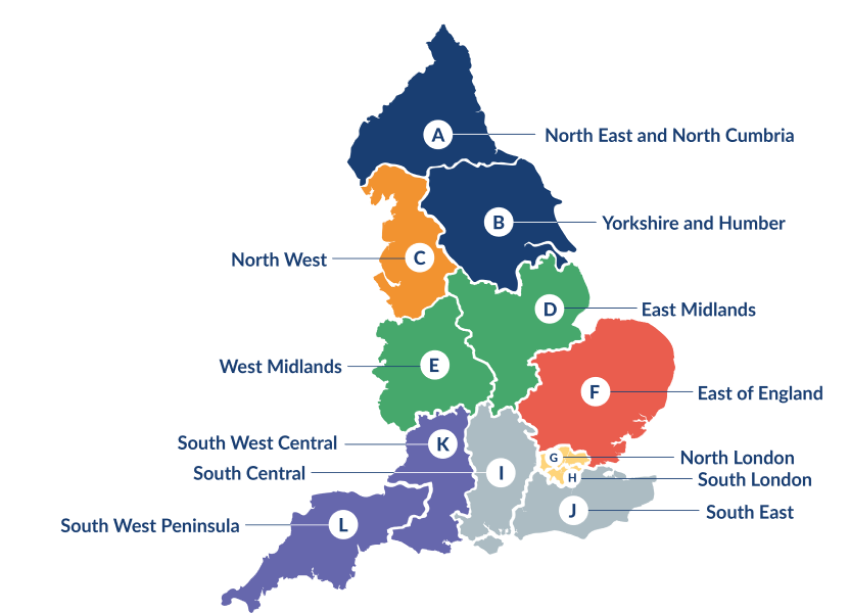Clinical Research Network

The NIHR Clinical Research Network (CRN) supports patients, the public and health and care organisations across England to participate in high-quality research, thereby advancing knowledge and improving care. The CRN supports research being delivered through 30 specialty therapy areas and 15 Local Clinical Research Networks. These provide a network of research expertise and clinical leadership to deliver research studies on the NIHR CRN Portfolio of studies. Find out more about our performance and key statistics relating to our activity.
From April 2024, the CRN will transition to a new organisation, the NIHR Research Delivery Network (RDN).
Research Delivery Network
The NIHR RDN is being established to support the delivery of high quality research that enables the best care for our population. The new organisation will build on the success of the CRN to support the country's world-class research system to deliver for the future.
The RDN will operate as one organisation across England and will play a critical and active role in implementing government policy, including:
- the Life Sciences Vision
- the Future of UK Clinical Research Delivery vision
- policy for life sciences research and development
- responding to the findings of the Lord O'Shaughnessy review
The RDN will support:
- clinical trials and other well-designed health and social care research studies (including studies that are delivered outside of an NHS setting)
- public health studies that require the recruitment of individuals within an NHS setting - this may include acute, ambulance, mental health, community or primary care
Growing the amount of commercial clinical research will be a key strategic ambition for the new network. The RDN will play a critical role in supporting the implementation of the Government's response to the Lord O'Shaughnessy report, which set out a clear blueprint for how the UK can return to its global leadership role in the support of commercial clinical trials and world-class research.
How will the RDN work in a different way to the CRN?
- The RDN will operate as one organisation across England. The RDN will have a shared vision and purpose, delivering a consistent experience for the research and healthcare communities. Innovations in one region will be shared and replicated across the country. It will be rooted in the local experience and needs of the research system and the populations it serves.
- The 12 Regional Research Delivery Networks will work as one with the Coordinating Centre and the Department of Health and Social Care to deliver a consistent, high quality and responsive service. The RDN will draw strength from its collaborative leadership model, with joint leadership composed from regional leaders, Coordinating Centre and DHSC colleagues. Regional context, expertise and relationships will enhance the quality of national decision making, leadership and coordination.
- The RDN will provide a range of services and support for research delivery, listening and addressing the needs of customers and working in collaboration with R&D teams. It will also support research sites with recruitment resources, tools to support research delivery, analysis and advice, and workforce development.
- The RDN will develop the strategic capacity and capability of the research system. The work of the RDN will build capacity for delivery partners to conduct research, with more researchers, sites, studies and participants involved in research. It will continue to bring research to under-served regions and communities with major health and care needs, considering the need for research inclusion and for the benefits of research to be spread across the whole country.
- The RDN will continuously learn and adapt to the changing domestic and global environment for health and care, life sciences and health research. It will work in collaboration with partners across UK health and care research to help drive improved efficiency across the system.
Regional Research Delivery Networks
NIHR Regional Research Delivery Networks (RRDNs) will develop excellent relationships with organisations commissioning and providing health and social care across their regions. They will help support research and promote the value of research in meeting the needs of local populations.

The NIHR RRDN map (pictured above) shows the geography of the 12 RRDNs that will make up the NIHR RDN from October 2024. These 12 RRDNs and their host organisations are listed below:
- North East and North Cumbria - hosted by The Newcastle upon Tyne Hospitals NHS Foundation Trust- Morag Burton, Director
- Yorkshire and Humber - hosted by Leeds Teaching Hospitals NHS Trust- Amber O'Malley, Director
- North West- hosted by Manchester University NHS Foundation Trust- Andy Ustianowski, Director
- East Midlands - hosted by University Hospitals of Leicester NHS Trust- Elizabeth Moss, Director
- West Midlands - hosted by The Royal Wolverhampton NHS Trust- Matt Brookes, Director
- East of England - hosted by Norfolk and Norwich University NHS Foundation Trust- Helen Macdonald, Director
- North London - hosted by Barts Health NHS Trust- Sharon Barrett, Director
- South London - hosted by Guy's & St Thomas' NHS Foundation Trust- James Lyddiard, Director
- South Central - hosted by University Hospital Southampton NHS Foundation Trust- Clare Rook, Director
- South East - hosted by Royal Surrey NHS Foundation Trust- Stephen Barnett, Director
- South West Central - hosted by University Hospitals Bristol and Weston NHS Foundation Trust- Kyla Thomas, Director
- South West Peninsula - hosted by Royal Devon University Healthcare NHS Foundation Trust- To be announced
The RDN Coordinating Centre will be hosted by the University of Leeds.
